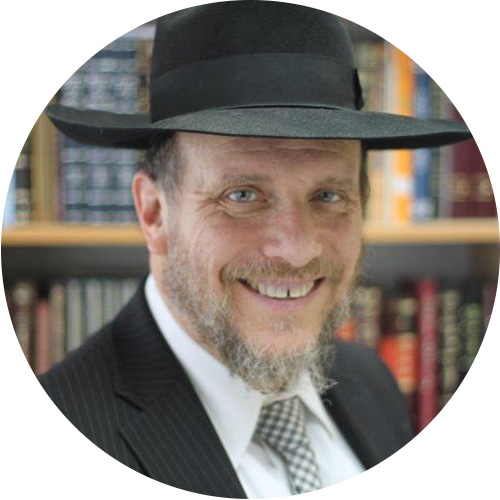“Allow Our Musical Son to Listen to Non-Jewish Music?”

We want our children to realize that there is nothing in the outside world worth sacrificing what we have

Question
Our 14-year-old son has been extremely musical since childhood, and we do everything we can to help him maximize his talents. We recently heard some strange-sounding music coming out of his bedroom, and when we asked him about it, he smiled and told us he was listening to a very talented non-Jewish singer. My wife and I were displeased and asked him why he had to listen to this when there are so many wonderful Jewish singers. In reply, he rolled his eyes and said, “C’mon, they have so much that we don’t have.”
My wife and I find this concerning. Non-Jewish music is not good for the neshamah, and the lyrics are even worse. Can we straight-out prohibit our son from listening to it? Will that backfire? Is there some middle ground?
Answer
Singular talent of any kind presents a formidable challenge, as the desire to maximize such talents will almost always precipitate interest beyond our communal borders. Our community certainly has what to be proud of; limud Torah hones our cognitive abilities to their utmost, and the extraordinary levels of hasmadah displayed in our batei medrash are unparalleled in the outside world. And limud mussar, avodas hamiddos, chassidus and machshavah have refined our understanding of human nature to levels once again unequaled in the world at large.
Talents, on the other hand, are gifts found in percentages of population and honed by intense and consistent training. The more one exercises and perfects those abilities, the more successful he or she will be. The prodigious musicians and singers in the outside world are often objectively a lot better than ours, firstly because they are the top picks from a much bigger pool, and also because they pursue the development of their talents with a single-minded focus that is unrealistic for a Torah-observant Jew.
The outside world’s stars — the 50 top musicians out of 10 million — are extraordinarily talented individuals who spend many thousands of hours perfecting their game, exclusively focused on their professional advancement, never needing to consider factors like davening and learning, Shabbos and Yom Tov, or moral qualms regarding whom to train with and before whom to perform.
ּThe profile of a frum “star” is markedly different. For starters, our top talent will be our best three or five of 100. More importantly, “Ashreinu, mah tov chelkeinu, u’mah na’im goraleinu — We are fortunate; how good is our portion, how pleasant out lot….” In our circles, celebrated singers or musicians will hopefully daven three times a day, stop whatever they’re doing on Shabbos and Yom Tov, and be careful with whom they train and before whom they perform.
Bottom line: Yes, their music will be “better” and more diverse than ours.
The bestselling fiction authors in the wider world are the best ten of one million writers; in our community it’s five out of 100. They will sell millions of books, be interviewed all over the world, make tens of millions of dollars, and yes, they are likely better writers than the fiction writers from within our community. And this goes for all fields; their dancers will outperform ours, their actors and actresses will eclipse ours, and their chefs will create superior dishes.
Where does that leave us? As the beloved children of Hashem, who have been separated and consecrated. And just as we will not compromise our unique standing in This World to taste a sirloin steak with butter, so too, we must be careful not to compromise our spiritual wellbeing by partaking in their culture of music and literature. We must be careful what we absorb into our digestive system, our hearts, and our souls.
The same way I will stand strong and eat only that which is 100 percent kosher — not 50 percent or 90 percent — but 100 percent kosher, so too I will be strong and read kosher and listen to kosher, watch kosher, and sing kosher.
Am I compromising? I am proud to be a Yid, proud to represent Hashem’s reality in This World, and so, no, I don’t feel like I’m compromising. Your son, however, who is young and talented, and can appreciate the nuances and innovation the outside world’s music boasts, might feel that he is compromising.
What can we do? If you put down your foot and say, “There will not be music of this genre in our home,” there are teens who will respect your wishes and toe the line. On the other hand, once your son has experienced what the other culture has to offer, it may be very difficult for him to give it up.
The Pele Yoetz discusses this challenge, and to paraphrase, he says: “But what can the leaders of our generation do… if a thousand chachamim would deliver a million lectures proving how the music of gentiles and songs of romance are prohibited; the women and boys would not take heed... because they cannot overcome their desire and leave their old customs. After all, they do not know the songs and praises of Hashem. They only know what they have; what will they sing at their times of joy?”
My rebbe Rav Shlomo Wolbe z”l would say it’s necessary to have knowledge of history to realize that our challenges are not new. Klal Yisrael has always dealt with the yetzer hara in all of its forms.
But let’s be honest about music. The Gerrer marches, the Modzhitz melodies, the Lubavitch masterpieces, and the Munkatch niggunim were all a reflection of the Russian, Polish, and Hungarian classics of the day. The litvish niggunim have the flavor of White Russia. The Sephardic liturgical piyutim were influenced by the music of the Arabs. Moving along, it’s unsurprising that Shlomo Carlebach was inspired by jazz and country music, and that later Jewish music contained undertones first of rock and roll and now dance.
I believe that almost every generation found the music of the following generation a challenge to appreciate. We listened to “Jewish music” that our parents found strange, and our children are interested in music we often find disturbing. So many people question the validity of true “Jewish” music. So how can we guide our children with some level of confidence to differentiate between appropriate and inappropriate music?
There are a hundred different opinions about this sensitive subject, and while I’m not qualified to give a psak on any level, I would like to present the summary of my discussions with talmidei chachamim over the years.
We have two basic guidelines:
- If the artist is a shomer Torah u’mitzvos who follows halachah and speaks with yiras Shamayim, it will be difficult to condemn his music as non-Jewish music.
- The above notwithstanding, if the source of the music is indeed straight from the non-Jewish music world, or when the tempo reaches the level where the body takes over and there is a disassociation of mind from body (as is the case with trance music), at that point there is no question that we have entered the world of tumah. Other than that, we may need to broaden our scope of what is the “Jewish music” we allow into our homes, so that our children will remain with a kosher experience.
Of course, every person can heighten his level of sensitivity, and the more one separates himself from the culture of the goyim, the easier it will be for him to access the finer aspects of kedushah.
This then is our challenge: to help our children be proud of our heritage, our culture, and more than anything else, our Torah and halachah. We want them to realize that there is nothing in the outside world worth sacrificing what we have.
If only we could help them recognize the value of what we have, they will find the courage and strength not to look for anything beyond what our world has to offer.
(Originally featured in Mishpacha, Issue 950)
Oops! We could not locate your form.







